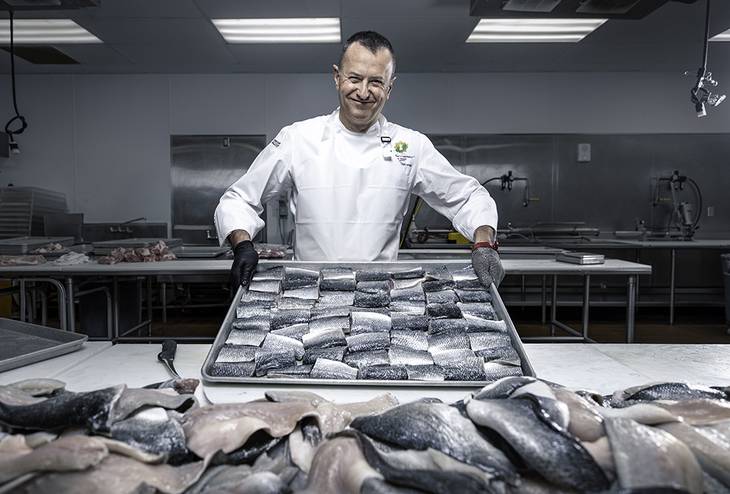There may be plenty of fish in the sea, but the number isn’t infinite.
That’s why officials at the Venetian decided earlier this year to partner with a California nonprofit that helps identify sustainable seafood supply chains.
“I think our guests and, really, everyone around the world are interested what’s happening in the food business,” said Olivier Dubreuil, vice president of culinary operations for the Venetian. “It’s important today to have not only the best product but the most sustainable product.”
In June, a partnership was announced between the Venetian and FishWise, which was founded in 2003 and is based in Santa Cruz, Calif. It’s FishWise’s first deal with a Strip resort.
“Seafood sustainability efforts have been evolving in other sectors, but there is still much work to be done in the hospitality industry,” FishWise CEO Tobias Aguirre said in a statement. “It’s exciting to see the Venetian, as a major player in their field, take up a leadership role.”
The effort stems from parent company Las Vegas Sands’ ECO360 global sustainability strategy, which also includes a focus on green buildings, green meetings and events, and overall responsible environmental operations.
“If we can go back from the fisherman all the way to the plate, that’s a good thing,” Dubreuil said. “Volume is so big and we get so many different items from everywhere, FishWise has been and will be a great tool for us to help put pressure on our vendors to make sure we have the most sustainable and freshest product.”
Keeping track of where the Venetian’s seafood comes from — as well as food served at places like the Sands Expo and Convention Center — is no small task. Every year, close to 5 million meals are served in those venues.
Since the partnership began earlier this year, FishWise has assessed more than $2 million in seafood purchases by Las Vegas Sands and has identified more than 50 unique species from 18 countries, officials said.
“In general, it can be difficult to track where seafood comes from, but, fortunately, the FDA has minimum labeling requirements for identifying what, where and how a seafood was caught or processed,” said Ethan Lucas, a project director for FishWise. “Seafood chains are often complex, global and untraceable, thus they can harbor seafood procured from illegal or unethical sources.”
According to FishWise, many of the world’s fisheries are overfished, meaning so many fish are being harvested that the population is declining.
The United Nations has estimated that 60% of global fish stocks — subpopulations of fish — are “fully exploited” while more than 30% are thought to be “overexploited.”
“Globally, we’re catching fish at such a high rate, fish populations just cannot keep up,” said Pranav Jampani, who heads sustainability efforts for the Venetian. “If no action is taken, we might become the last generation to consume fish. Overfishing also doesn’t just mean the depletion of fish species, it can mean death for sea creatures that get inadvertently caught in nets.”
